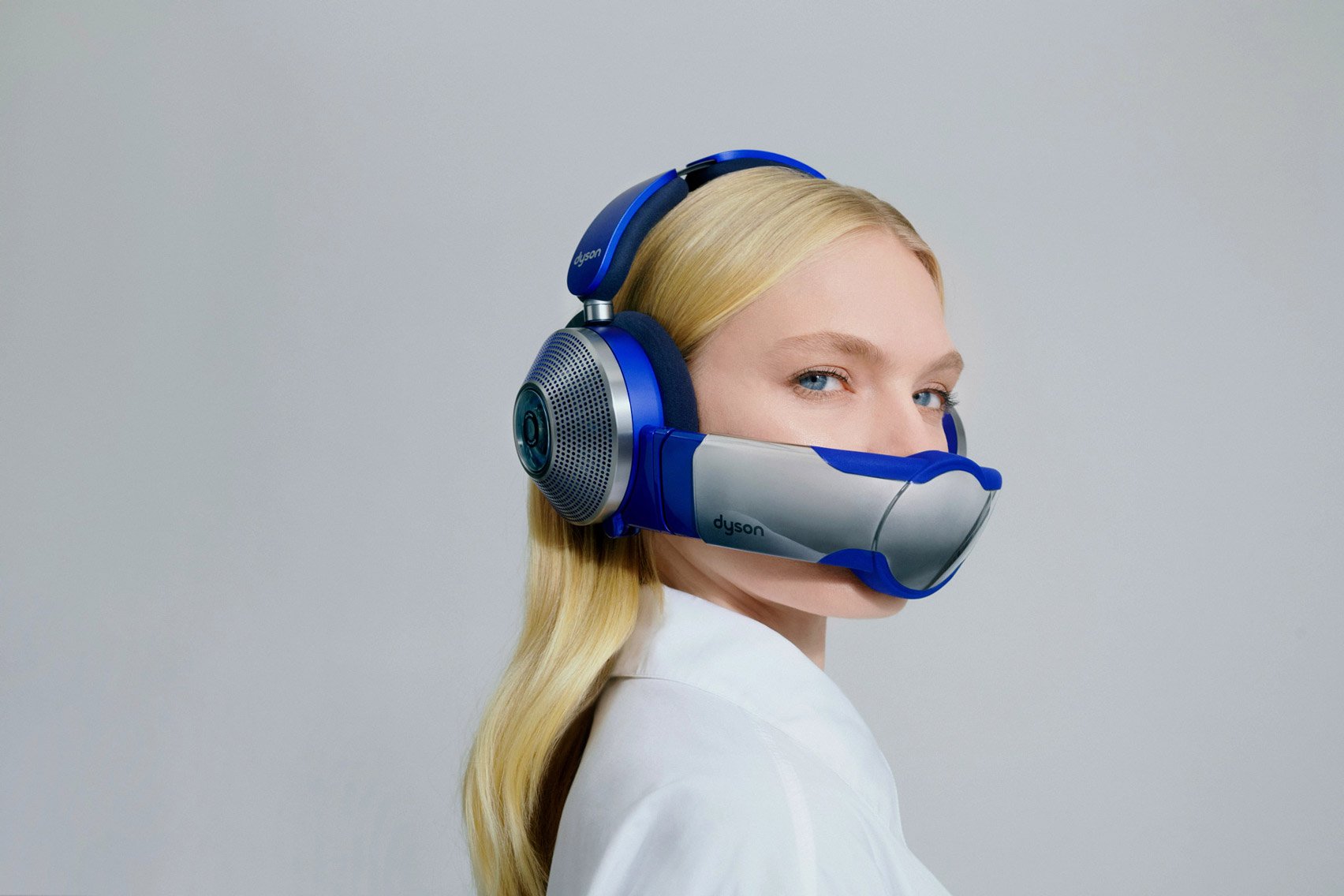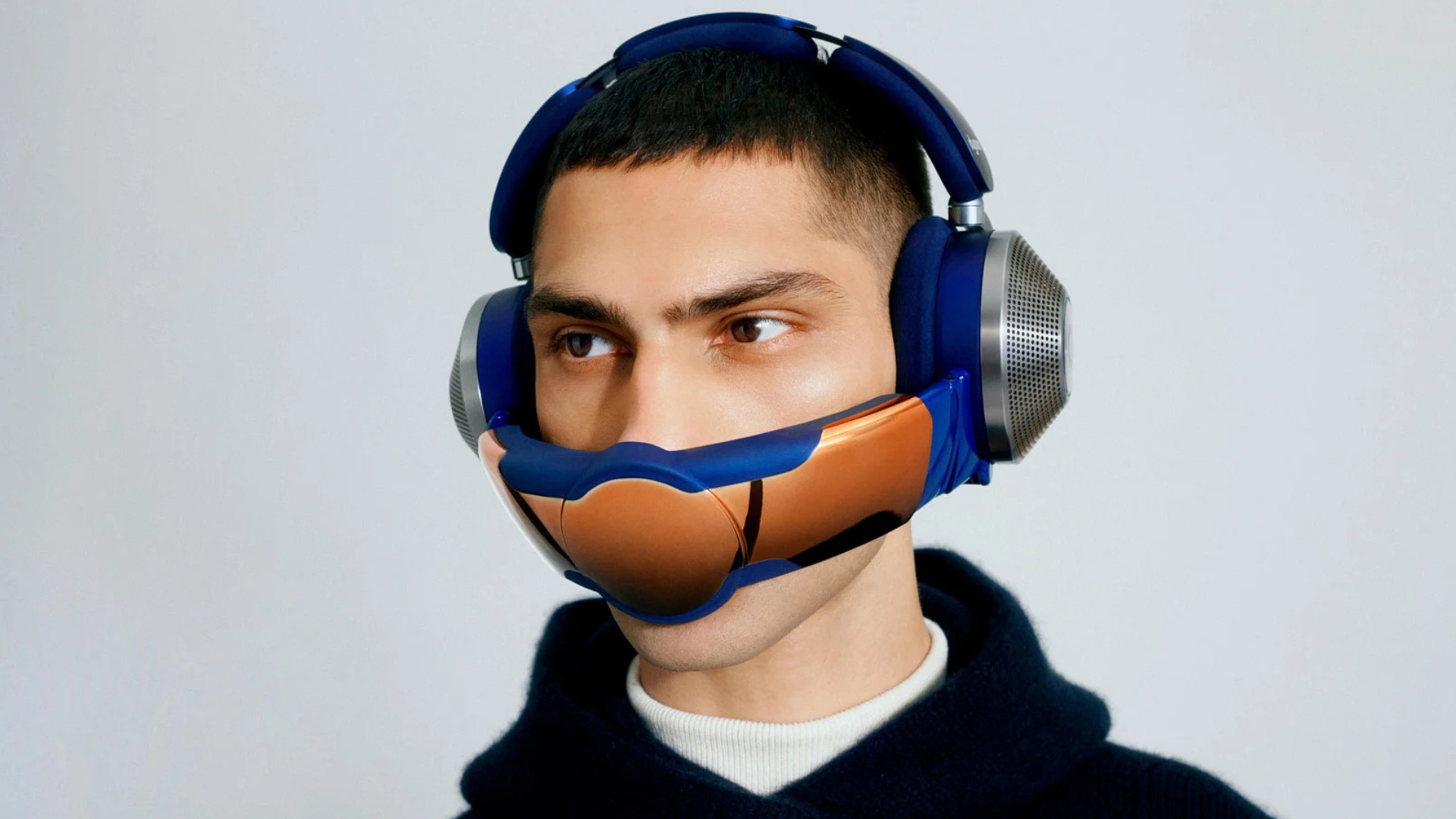- Home electronics manufacturer Dyson has launched its first audio headset, with a twist.
- Called the “Dyson Zone”, the device also comes with an air pollution filtration system and retails for just under $1 000.
- It will be launching first in China early next year, followed by the UK, US, Singapore, Ireland and Hong Kong.
Tech media is abuzz with Dyson’s latest headset offering. The household electronics company announced earlier this year that it was entering the audio market with a device that can combat the dual problems of noise and air pollution.
How would this work, you ask? Well, as seen in the header image, it has a visor-like piece that lowers, covers the mouth and nose and acts as an air filtration system.
Over 500 prototypes of the device have been made at Dyson, but it looks like the brand has settled on a model and is looking at a January 2023 launch for the so-called “Dyson Zone”.
This is according to a press statement issued by the company, where it explains that, “More than half of the global population lives in cities. This is expected to reach 7 in 10 by 2050. As urban populations grow, so does associated infrastructure – transport, construction, traffic – all of which impact the environment in which we live, polluting the air and generating noise.”

As a solution to this problem, the Dyson Zone is engineered to combat city noise and air pollution. The company is leveraging its over “30 years of expertise in airflow, filtration and motors technologies” to bring air filtration to your listening experience.
Air is sucked in through the compressors in each ear cup, it passes through “dual-layer” filters and eventually gets projected into two streams into the mouth and nose through the droppable piece.
Dyson says the filters capture 99 percent of particle pollution, stopping particles as small as 0.1 microns squared. Added to this are K-Carbon, potassium-enriched carbon filters that block out the acidity in city air pollution.
But since it does not have a seal, the device will not be able to stop viruses like COVID-19 from entering your system.
In terms of audio, the Dyson Zone offers 38 dB of noise cancellation through a system of eight microphones which monitor surrounding sound. The brand says that the headset is specifically engineered to minimise noise distortion and provide super-clear audio.
Adjustability is also key for the Dyson Zone, as the company says the airflow speed and noise-cancellation can be adjusted on the MyDyson app. The app can also use the headset to measure the air quality around the user.
Dyson is aiming for high-pollution markets, and the device is set to launch in China in January, and in the US, UK, Ireland, Hong Kong and Singapore in March. The delayed launches in the other countries could be to gauge the device’s sales in China first, before a wider roll out.
India, which famously has dangerous levels of air quality in cities like New Delhi, has been excluded from this initial launch list, which seems to only take into account developed nations.
Probably because of the Dyson Zone’s price point, which is set at $949, or around R16 500, according to Gizmodo.
South Africa’s largest cities are generally not as polluted as cities like Beijing or New Delhi. Recently, the Council for Scientific and Industrial Research (CSIR) denied claims that Johannesburg is one of the world’s most air polluted cities.
So would the South African market be open to incredibly expensive and otherwise unneeded headphones? Probably not, but we are tentatively curious to see how the product does in markets with dangerous levels of air pollution, like China.
It’s a gamble from Dyson, as the headset does make you look like a bit of a doofus but certain colour schemes could fit well with Optimus Prime cosplays. Dyson says it has been working on the device for over five years, and what it is claiming that the headset can do is impressive.
But for some reason, the Dyson Zone can’t shake the Google Glass smell that permeates it and gadgets like Meta’s latest VR headset effort.
[Image – Dyson]

